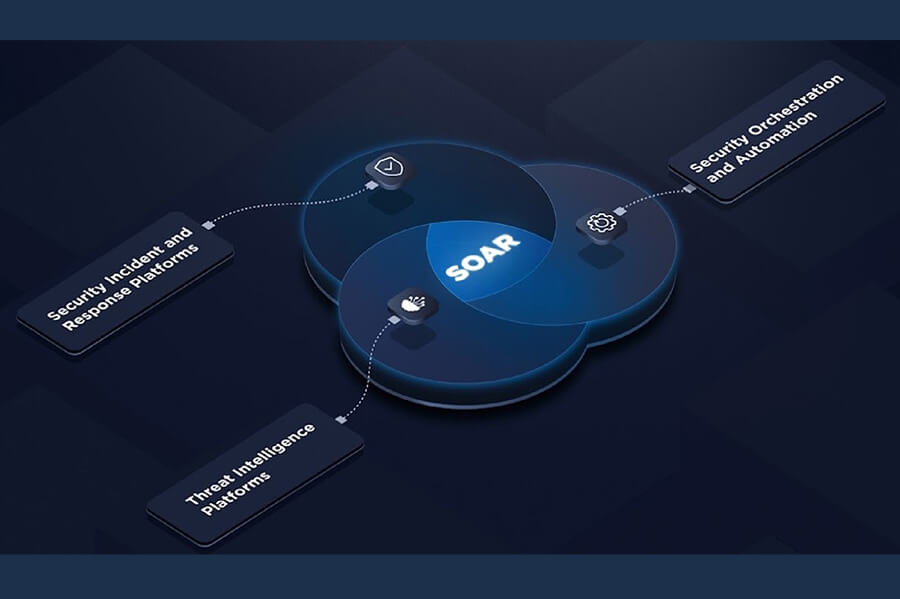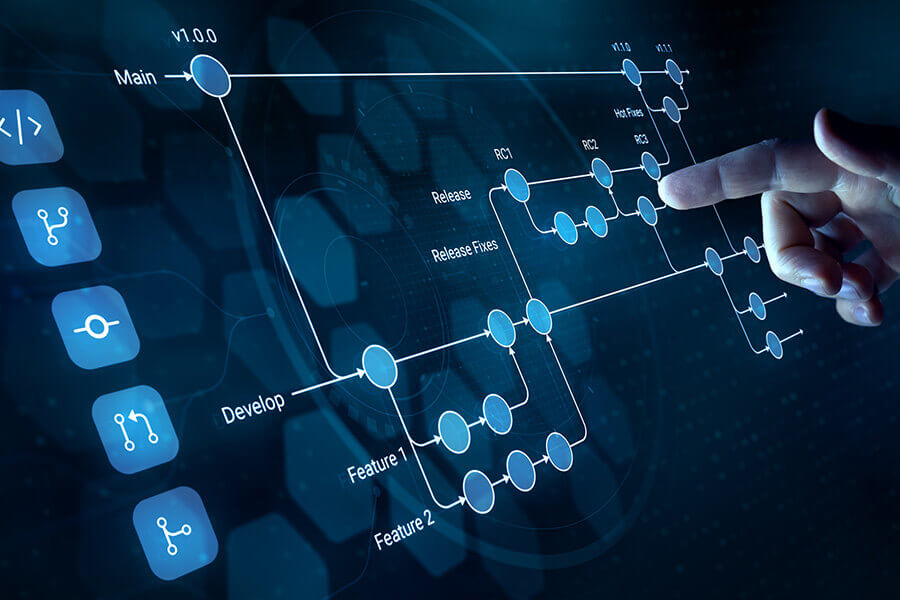The future of AI: what to expect from the most revolutionary tool of recent times
Imagine a world where machines can think, learn, and act like humans. This is not a distant dream, but a reality being shaped by artificial intelligence. AI is transforming industries, revolutionizing the way we live and work, and opening up new possibilities that were previously unimaginable.
As we stand at the threshold of this technological revolution, it’s natural to wonder what the future holds. Will AI continue to advance at a breakneck pace, or will it plateau? The truth is that the future of AI is bright, with potential applications in healthcare, finance, education, and many other fields.
As the most revolutionary tool of recent times, AI is poised to change the world. In this article, we’ll explore the exciting developments in AI and what they mean for us.
The Evolution of Artificial Intelligence: From Science Fiction to Daily Reality
The evolution of Artificial Intelligence is a testament to human ingenuity, transforming a fictional concept into a revolutionary technology that permeates every aspect of modern life. As we reflect on its journey, it becomes evident that AI’s development has been nothing short of extraordinary.
The Remarkable Journey from Concept to Mainstream
Artificial Intelligence has traversed a long path from its inception in science fiction to its current status as a ubiquitous technology. Initially perceived as a futuristic fantasy, AI has gradually become an integral part of our daily lives, influencing various sectors from healthcare to finance.
Breakthrough Moments That Redefined Possibilities
Several breakthroughs have marked the journey of AI, significantly redefining its possibilities. Advances in machine learning and natural language processing have been pivotal, enabling machines to learn from data and interact with humans more effectively. These developments have not only enhanced AI’s capabilities but have also opened up new avenues for its application, paving the way for future innovations.
As AI continues to evolve, its impact on society is becoming increasingly profound. With its potential to drive future trends and innovations, AI is poised to change the world in ways we’re just beginning to understand.
AI Today: The Foundation of a New Technological Era
As we step into the future, AI stands as a cornerstone of technological advancement. The impact of AI is already being felt across various aspects of our lives and businesses.
How AI Has Already Transformed Our Daily Lives
AI is already reshaping workplaces and redefining how we work. From virtual assistants to predictive analytics, AI technologies are enhancing productivity and efficiency.
For instance, AI-powered chatbots are revolutionizing customer service by providing 24/7 support, while AI-driven analytics tools are helping businesses make informed decisions.
Current Enterprise Applications Driving Innovation
In the era of machine learning, enterprises are leveraging AI to drive innovation. Artificial intelligence (AI) in business is being utilized to streamline operations, enhance customer experiences, and uncover new opportunities.
Companies are adopting AI-powered solutions for supply chain optimization, fraud detection, and personalized marketing, among other applications.
By embracing AI, businesses not only improve their current operations but also position themselves for future success in a rapidly evolving technological landscape.
The Machine Learning Revolution: Unlocking Unprecedented Potential
The machine learning era has arrived, ushering in a revolution that promises to redefine the boundaries of what is possible. At the heart of this revolution are deep learning and neural networks, technologies that have enabled machines to learn from data in ways that mimic human cognition.
Natural Language Processing
NLP has emerged as a crucial component of the machine learning landscape, enabling machines to comprehend and produce human language. This has far-reaching implications for customer service, language translation, and more. As NLP continues to evolve, we can expect to see even more sophisticated applications of machine learning in the years to come.
The potential unlocked by these technologies is vast, and their impact will be felt across industries. As we continue to push the boundaries of what is possible with machine learning, we must also consider the ethical implications and ensure that these technologies are developed and used responsibly.
Generative AI: The Creative Force Reshaping Industries
Generative AI is not just a tool for automation; it’s emerging as a creative partner for businesses worldwide. By harnessing the power of generative AI models, companies can now explore new frontiers in content creation, driving innovation and efficiency.
Beyond Automation: AI as a Creative Partner
The role of generative AI in business is expanding beyond mere automation. It has become a vital component in the creative process, enabling enterprises to generate innovative ideas, designs, and content. This partnership between humans and AI is fostering a new era of creativity.
How Generative Models Are Transforming Content Creation
Generative models are revolutionizing the way content is created. From text generation to visual art, these models are providing businesses with the tools they need to produce high-quality content efficiently.
Text Generation and Writing Assistance
Generative AI solutions are being utilized to assist in writing and content generation, enabling businesses to produce engaging and relevant content efficiently. This technology is beneficial for creating personalized customer experiences.
Visual Art and Design Revolution
In the realm of visual art and design, generative AI models are enabling the creation of stunning visuals and designs that were previously unimaginable. This is transforming industries such as advertising, media, and entertainment.
As generative AI continues to evolve, its impact on content creation and business will only grow, opening up new possibilities for innovation and creativity.
How AI Will Change the World: Embracing a Transformative Future
As we stand on the cusp of a new technological era, the potential for AI to revolutionize our world is vast. The future is not just about adopting new technology; it’s about transforming our lives and industries in ways we are just beginning to imagine.
The Dawn of Hyper-Personalized Experiences
One of the most significant impacts of AI will be the emergence of hyper-personalized experiences. AI can analyze vast amounts of data to understand individual preferences and tailor experiences accordingly. As
This hyper-personalization will revolutionize customer service, marketing, and even healthcare by providing more targeted and effective treatments.
Reimagining Work in the Age of Artificial Intelligence
AI will also transform the workplace. Automation will take over routine tasks, freeing humans to focus on more complex and creative work. This shift will require workers to adapt and acquire new skills, underscoring the importance of continuous learning and professional development.
Impact on Key Industries
The impact of AI will be felt across various industries. In healthcare, AI will enhance diagnostic accuracy and personalize treatment plans. While in finance, AI will improve risk management and detect fraud more effectively. In education, AI will enable personalized learning experiences, making education more accessible and practical.
As we move forward, embracing AI’s potential while addressing its challenges will be crucial. The future with AI is promising, and its transformative impact will be profound.
The Democratization of AI: Innovation for Everyone
The democratization of AI is revolutionizing the way we innovate, making cutting-edge technology accessible to everyone. This shift is not just about making AI more available; it’s about empowering individuals, small businesses, and large enterprises alike to leverage AI’s vast potential.
AI as a Service: Enterprise-Grade Tools for All
AI as a Service (AIaaS) is a significant factor in the democratization of AI. It provides businesses with access to enterprise-grade AI tools without requiring substantial upfront investment in infrastructure or talent. Companies like Amazon, Google, and Microsoft are leading the charge by offering AIaaS solutions that cater to a wide range of business needs.
Open-Source AI: Collaborative Innovation at Scale
Open-source AI is another critical component in making AI more accessible. By allowing developers to collaborate and build upon existing frameworks, open-source AI accelerates innovation. Projects like TensorFlow and PyTorch have become cornerstones in the AI development community, enabling rapid progress and widespread adoption.
Building AI Literacy: The New Essential Skill
As AI becomes more pervasive, understanding its capabilities and limitations is crucial. Building AI literacy is essential for businesses and individuals to harness AI effectively. This involves not only technical knowledge but also an understanding of how AI can be applied to solve real-world problems, making it a new essential skill in the digital age.
Navigating Challenges on the AI Frontier
The rapid evolution of AI brings numerous benefits, but it also presents several challenges that need to be navigated. As AI becomes increasingly integrated into various aspects of our lives, addressing these challenges is crucial for ensuring that its development and implementation are both responsible and beneficial to society.
Addressing Data Privacy and Security Concerns
One of the significant challenges facing AI is data privacy and security. As AI systems rely heavily on data, ensuring that this data is handled securely and in compliance with privacy regulations is paramount. “The way we manage data will define the future of AI,” says an expert in the field, highlighting the importance of robust data governance frameworks.
The Imperative for Explainable AI (XAI)
Another challenge is the need for Explainable AI (XAI). As AI decisions become more critical, understanding how these decisions are made is essential for trust and accountability. XAI is about making AI systems transparent and their decisions interpretable.
Economic Transformation and Job Evolution
AI also brings about economic transformation and job evolution. While there is a risk of job disruption, there is also a significant opportunity to create new job categories and enhance productivity. The key is to prepare the workforce for this transition through education and retraining programs.
Conclusion: Embracing Our AI-Powered Future
As we stand at the threshold of a new technological era, it’s clear that the future of AI holds immense promise. From transforming industries to redefining daily life, the impact of AI is profound. Embracing AI means not just adopting new technology, but also embracing a future where possibilities are endless.
The journey of AI, from its conceptual roots to its current state of sophistication, demonstrates human ingenuity. As AI continues to evolve, we must prepare for an AI-powered future. This involves not just understanding AI, but also being aware of its potential to drive positive change.
By fostering a culture that embraces AI, we can unlock unprecedented opportunities. The future is not just about technology; it’s about how we choose to use it to create a better world. As we move forward, the role of individuals and societies in shaping this future will be pivotal.







